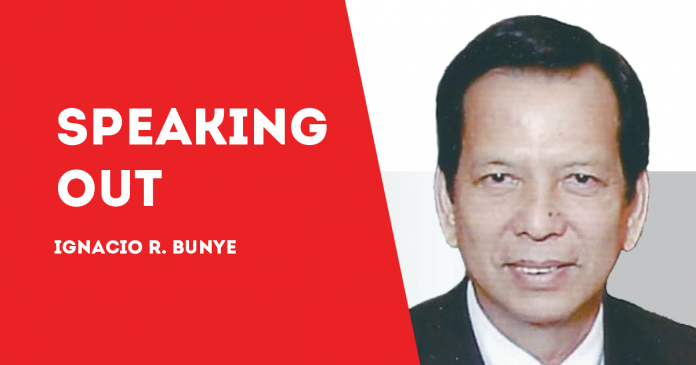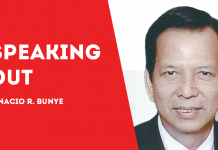
THIS YEAR’S valedictorian at the Ateneo de Manila University is Reycel Hyacenth Bendana – daughter of a hard-working jeepney driver who lost his job.
This is her inspiring and heart-warming story as only she can tell it.
The following are excerpts from a pre-qualification essay for valedictorian selection which Reycel submitted. The essay has since gone viral. Her actual valedictory address where Reycel zeroed in on poverty as the biggest barrier, was just as moving.
“When I was nine years old, my elementary school sent me to Ateneo de Manila for a science quiz bee competition. Although my teammates and I ended up only in third place, I did not go home feeling miserable. Instead, I felt a renewed sense of hope. Later that night, I prayed to God and told myself, “One day, I’ll study in Ateneo.”
“One night, though, it dawned on me that I could not. I am from a poor family. My father is the most hardworking man I have ever known, but his income is barely enough to support our family.
“I started a small sari-sari store that I tended after school on weekdays from 12 noon to 10 p.m., and on entire weekends. I was eager to make the business flourish: I would buy and carry the groceries myself, even the crates of soft drinks, in the hope of saving up enough in the next six years. But I realized there was no way I could do it. Ateneo was simply beyond the reach of poor people like me.
“Three years later, with rising oil prices, my father and I joined nationwide jeepney strikes, demanding that the government raise the minimum fare. The economic crisis reduced profit for most businesses. For my family, it meant there wouldn’t be enough food on our table. It meant promissory notes when enrollment time came.
“We moved to Polangui, a small town in Albay where the most expensive private school was one of the worst in the region. My parents told me we could afford only public education. Don’t get me wrong. I think highly of public schools, but Polangui had a few of the worst ones. Most high school students couldn’t read and write properly and could barely do complex math.
I was ambitious. I wanted a bright future and I knew that studying in Polangui could not give me that. With no practical prospects but a lot of hope, I took the entrance exams in all the private schools I knew outside Polangui.
“Ateneo de Naga, one of the best schools in the region, granted me a full scholarship for high school. My parents could not believe it at first; how could a poor young girl from the farthest barrio in a small town qualify to be an Atenean? Slowly, my dream of studying in Ateneo de Manila was becoming attainable.
“Even with the full scholarship, however, I still had to be a working student. My allowance per week was P500; I was living on P85 a day, half of which went to transport costs while the other half was just enough to buy me one meal (lunch) a day. For breakfast and dinner, I would usually eat cookies — one packet, halved. I always felt like fainting.
“I would be in my classes from 7 a.m. to 6 p.m.; then, from 6 p.m. until 12 midnight, I’d be at my part-time job, helping my well-off classmates with their assignments. Only after midnight would I have time to accomplish my own schoolwork. I would usually sleep at 4 a.m. and wake up two hours later to prepare for the next day.
“With all my activities — as president of the honors class, candidate for valedictorian, and training for varsity debates — those two hours of sleep were sometimes reduced to none.
There were times I wanted to give up. The hunger and lack of sleep was too much, but I was determined to prove myself. On days when I felt hopeless, I reminded myself of the nine-year-old girl and her dreams of changing the world through her Ateneo education. I would then wake up with a renewed sense of hope and an even greater determination to persevere.
“My success is an exception, not the norm: Rarely do we see a child from the poorest of the poor climb her way up to one of the top universities in the country and become its highest student representative. What was difficult for me is still unattainable for others and will remain so, even with Ateneo’s most generous efforts.
“That is because generosity is not enough. The success of one person should not depend on the virtue of another. I may have exceeded expectations, but let’s face it, people do not expect much from children of poor families. We are condemned by ‘the soft bigotry of low expectations’ (as former US president George W. Bush once put it), and impeded by the hard barrier of unequal opportunity.
“I am an example of the underprivileged gaining the highest quality of education in one of the best universities in the country and achieving their dreams. It is possible, but it will take more than good intentions.
“Mine is the story of a child whose grandmother died because three hospitals refused to operate on her without a down payment, and whose grandfather tilled land that wasn’t ours for 60 years because land reform failed us.
“Mine is the story of a daughter whose father is jobless because the government phased out our jeepney in the name of hollow modernization, even before a policy to that effect was decided on.
“Ateneo may have shown my fellow students the realities of injustice in society, but to me it served as a refuge from my own experience of social inequality.
“I write this essay with gratitude to Ateneo and my scholarship benefactor, without whom this narrative would not have been possible. Therein lies the real generosity of Ateneo — it believes in the dreams of its scholars and makes miracles happen.
“As I leave Ateneo, I hope to take higher studies later and do volunteer work in the development sector. Beyond my bachelor’s degree, Ateneo fostered in me leadership, compassion and courage. It is these values that I take with me as I start the next chapter of my life.
“The Philippines needs more builders, not destroyers; it needs people who have the initiative to create incremental changes and patience to create those small changes every day, until the ripples are big enough to create a massive disturbance.
“When I was nine years old, I dreamt of studying in Ateneo. Now that I’m leaving Ateneo, I dream of changing the world.”
***
Note: Should you like this narrative, please feel free to share it via Facebook and/or Twitter./PN





